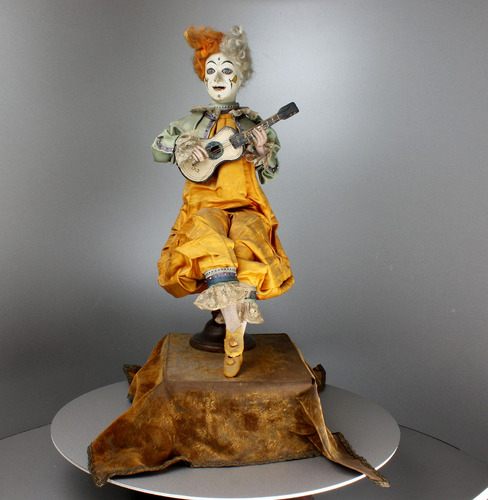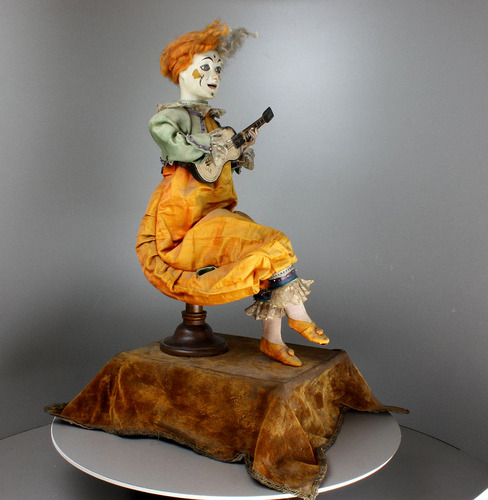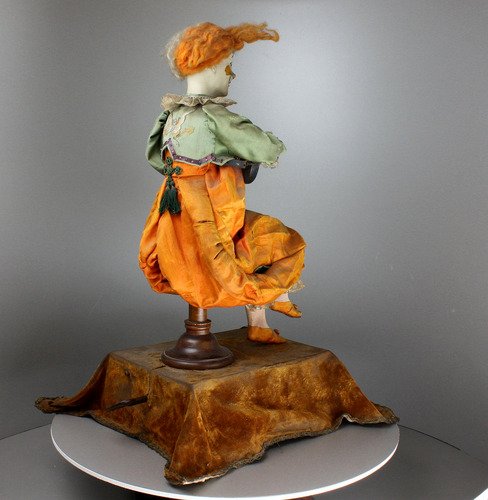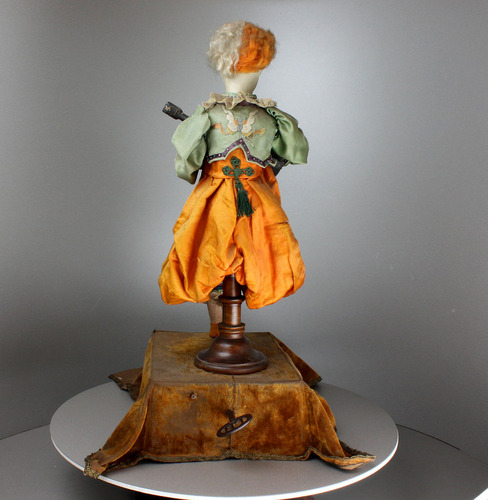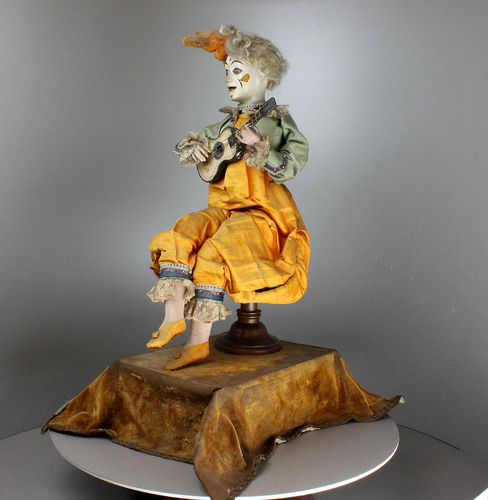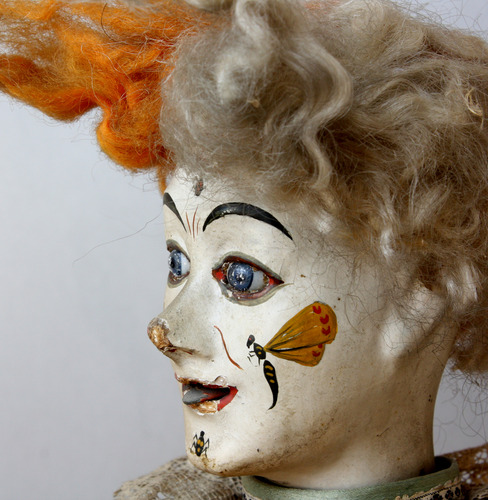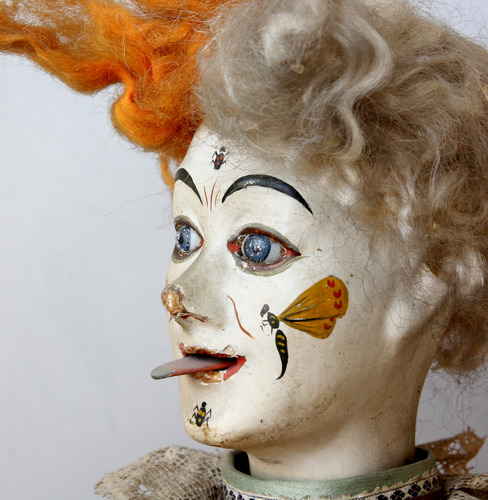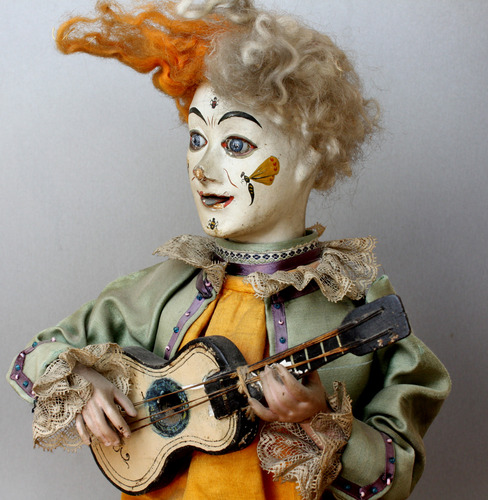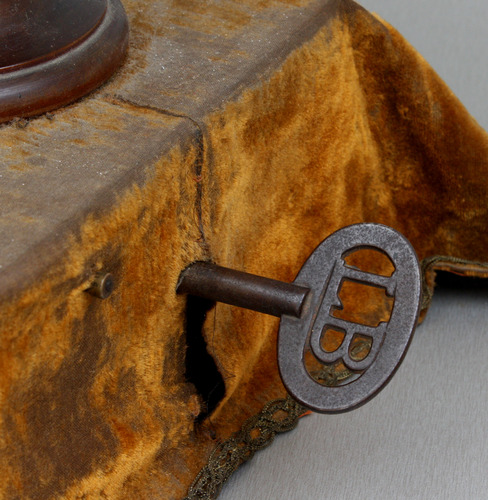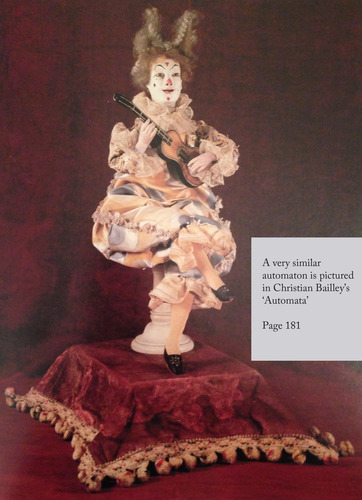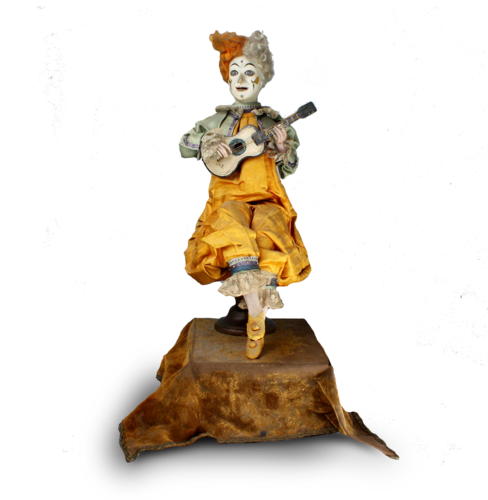
Antique Guitar playing Clown musical automaton, by Leopold Lambert
A very fine antique Guitar playing Clown musical automaton, by Léopold Lambert
French
circa 1900,
Full body movement and with Lambert's famous sticking out tongue features,
The punk and the guitar player
When wound and the start/stop pull actuated, the clown starts his highly amusing recital, by turning his head to the left and back by raising it up in an arc, sticking out his tongue repeatedly, tapping his left foot in time, then rocking his entire body forwards and backwards whilst all the time strumming his guitar strings to play, all accompanied by the sweet music from the cylinder movement within the base.
The clown, seated upon his circular stool, with beautifully painted papier-mâché head, decorated with butterflies and beetles to chin, forehead and cheeks, blue glass eyes, open mouth with the reciprocating tongue of painted shaped metal. He wears a natural hair wig shaped to make twin peaks in white and bright orange. He is dressed in fabulous silk clothes of teal green over-jacket, baggy trousers in layered cut in carrot-orange, finished with lace hems, white stockings and matching orange shoes.
He holds and plays the very realistically modelled guitar with close detail including strings, tuning pegs and soundhole.
He sits on the stained turned wood stool with flared base, on the original green velvet covered base with overhang.
Start/stop and winding key to rear.
size - Stands 23.5" ( 60cm ) Tall
Point of Interest
For a very close comparison to his 'brother' survivor who is based upon card suits, see pp 180-1 in Automata - The Golden Age, C. Bailly.
Full-body movement automatons make their mark gracefully, by not showing all the movements at once - instead gradually increasing the complexity before the viewer's eyes for a much greater impact.
Here the clown strums away, then out pops the tongue in an amusing, yet not too rude manner - after all, he is an entertainer, not a street urchin. The head movement is good enough, by way of moving through the horizontal before raising up to come back in a crescent formation. But then the rocking forward and backward the entire body takes you by real surprise.
The main reason technically is the route the rods have got to reach the elements from the movement - they would have to either compress or expand so as not to activate these other features. They don't. It is simply achieved by the use of very clever routing of the rods from movement to actions - not one touches another and the cam stack inside is relatively straight-forward.
We wonder how many times they tried to get the movement to do this on the bench before it worked correctly? Knowing Lambert, probably just the once...
| STOCK No | 1490 |
| AVAILABILITY | Sold |
| PRICE | Sold |


